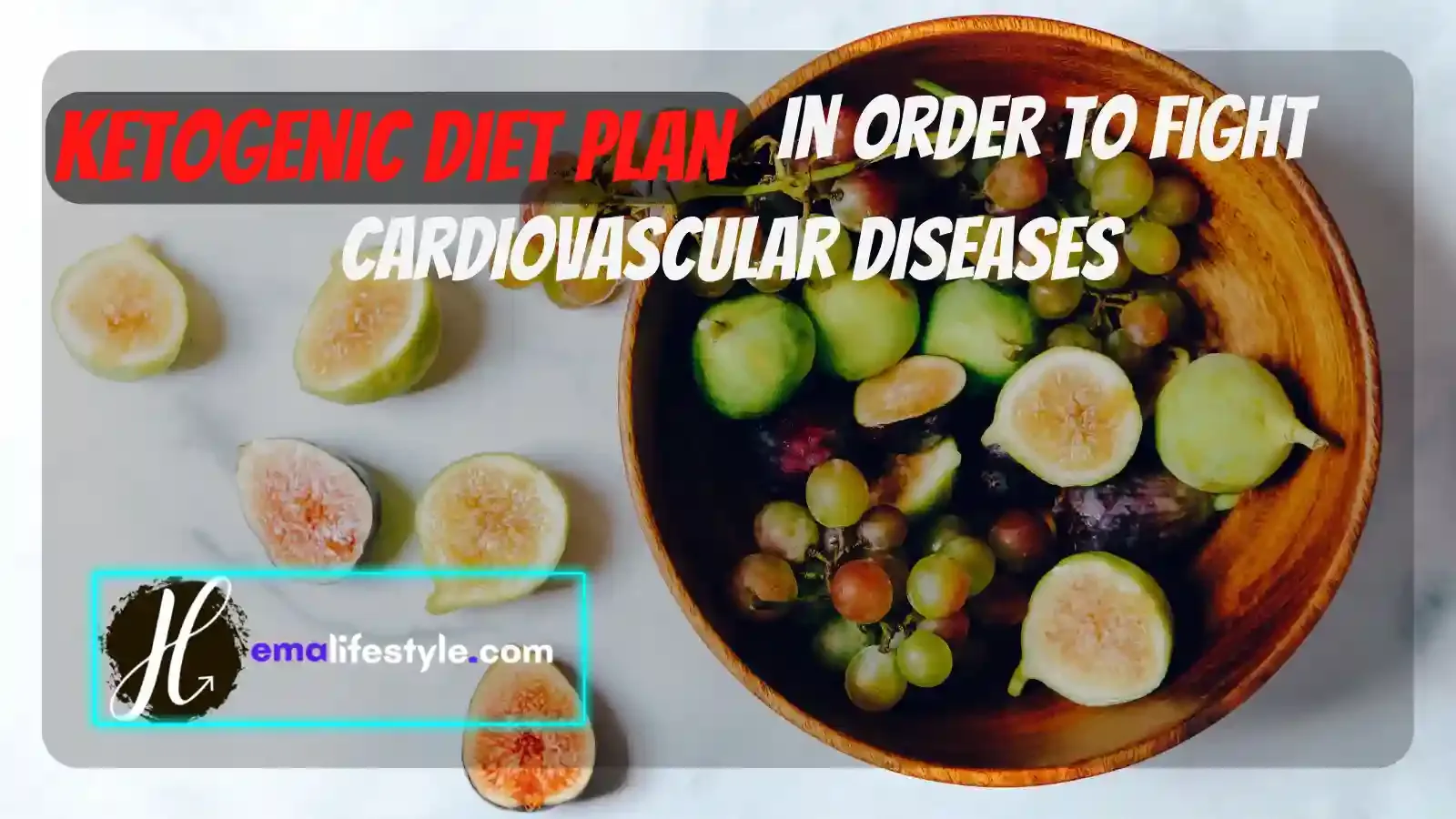ketogenic diet plan in order to fight cardiovascular diseases
You're considering beginning a ketogenic diet plan to treat a health issue (ketosis and heart disease) but you're not sure where to start. Or perhaps you are concerned about internet nutritionists who make grandiose claims about how successful their diet regimens are only to deliver a bowl of sand.
We'll talk about the advantages of the ketogenic diet and some meal suggestions in this post. If it prevents illnesses and what things to consider before beginning a nuvialab keto diet.
ketogenic diet plan
In essence, the ketogenic diet, sometimes known as the "keto diet," deprives the body of carbs and pushes it to burn fat for energy through a process known as ketosis.
The human body naturally uses glucose from carbohydrate meals as its primary fuel source. The liver must, however, break down fat reserves to make energy when the body is low on glucose.
You will be better able to choose the sort of plan you require by taking a brief look at the various ketogenic diets.
The ketogenic diet, sometimes known as the keto diet, is likely to come up in any discussion regarding dieting or weight reduction. People all around the world who want to reduce weight and improve their health now choose the keto diet as one of their go-to strategies.
According to some studies, following this low-carb, high-fat diet may help type 2 diabetics lose weight and improve their glycemic control. PubMed journal: highly regarded National Institutes of Health database.
Additionally, the ketogenic diet may have neuroprotective benefits and enhance cognitive performance in Alzheimer's disease patients.
standard ketogenic diet
A regular ketogenic diet has no carbohydrates, moderate amounts of protein (20–25%), and 70–75% fat. You are consuming more calories from fats than from carbs is the goal. Following a ketogenic diet relies on your body's demands, genetic makeup, and composition even though this may be a standard ratio.
This low carbohydrate diet is really limiting, thus you must include an infinite amount of fat in your meals. Maintaining this might be quite challenging. You could eventually feel inclined to revert to your previous carbohydrate cravings and behaviors.
Periodic Ketogenic Diet
In individuals with overweight or obese T2DM, the periodic ketogenic diet can manage blood glucose and blood lipid levels in addition to weight. Long-term tenacity, however, is challenging. It could function as a diet treatment model.
This variation on the keto diet calls for eating more carbohydrates to replenish your body's depleted supply of glucose. Your body alternates between one energy source (ketones, a byproduct of ketosis), and another during keto cycling (glucose). The cyclical ketogenic diet is mainly made up of fat, with just 10% of it being carbs.
To do this, a conventional keto diet of 5–6 days is kept up, then an alternate cyclical diet of 1–2 days is kept up. Once more, this ratio is not one that is generally accepted in nutrition. As you increase your intake of fiber, your digestion, and athletic performance both improve.
food to eat on the ketogenic diet
The majority of keto diet regimens permit a list of items, including:
- Meats
- Fish
Anchovies, flounder, bass, mackerel, trout, salmon, tilapia, tuna, and tuna.
- Nuts and Seeds
Almonds, cashew, hazelnut, peanut, pecan, sunflower, macadamia, pumpkin, pistachio, and sesame seeds are some examples of nut varieties. Flax with chia seeds.
- Fats
Avocado, eggs, duck fat, nut oils, salmon, palm oil, MCT oil, olive oil, macadamia oil, coconut oil, avocado oil, ghee, and avocado.
- drinks
tea, coffee, herbal tea, and water.
- Dairy
Cottage cheese, butter, brie, cream cheese, eggs, ricotta, mozzarella, sour cream, almond and cashew milk.
- Vegetables
Celery, cauliflower, asparagus, artichokes, collard greens, cucumber, peppers, broccoli, spaghetti squash, arugula, spinach, and other leafy greens.
Who Shouldn't Participate in Keto?
A ketogenic diet may have unfavorable long-term health implications. So, before beginning, it is important to evaluate your genetic makeup, body composition, and underlying health concerns that might be harmful. It's also important to recognize that bodies vary. Whatever seems safe for one person may be quite harmful to someone else.
To avoid the possibility of serious health consequences, it is imperative to review any proposed diet plan with a doctor, dietitian, or another qualified healthcare expert.
The following groups of patients and people should avoid the ketogenic diet:
- individuals with thyroid disease because it may inhibit free thyroid hormones, the ineffectiveness of thyroid medicine, and other hormonal abnormalities.
- It may result in neural tube defects in women who are nursing or pregnant.
- those who are at a higher risk of cardiovascular disease since a high intake of saturated fats might increase cholesterol.
- Patients at risk for the keto flu (constipation, diarrhea, fatigue, nausea).
- metabolism of fat disorders.
- Increased body ketones cause kidney injury.
- Having too much protein in the blood causes ketoacidosis, which raises acidity.
- diabetic individuals who are insulin dependent.
- Your blood sugar (glucose) level is lower than normal when you have hypoglycemia.
- vitamin and mineral deficit.
- In individuals with liver failure, the ketogenic diet is not recommended.
- fatty liver or hepatic steatosis.
What Advantages Does a Ketogenic Diet Plan Offer?
There are significant benefits of the ketogenic diet even if it can appear that the negative consequences outweigh the positive ones. Among the advantages are the following:
- decreases cancer risk and blood sugar
Nutritional specialists claim that the ketogenic diet kills cancer cells by producing greater oxidative stress in them than in healthy ones. Additionally, a ketogenic diet lowers blood sugar and the chance of insulin problems. The consumption of good fats lowers cholesterol.
- Promotes weight loss
Since the goal of the keto diet is to get more calories from fat than from carbohydrates, the keto diet reduces appetite and promotes weight loss. The mainstream media picked it up and marketed it as an effective weight loss system.
- Polycystic Ovary Syndrome (PCOS)
Dietary ketosis helps PCOS (Polycystic Ovary Syndrome). Menstrual irregularities, excessive hair growth, acne, and obesity are all symptoms of a hormonal condition that results in enlarged ovaries with tiny cysts on the outside margins. N/B The supporting scientific evidence is unknown to us.
- Neuroprotective benefits
The ketogenic diet has once again been reported by nutritionists to have neuroprotective benefits. Switching to diet can protect and strengthen nerve and brain cells. The keto diet was originally introduced to treat epilepsy in children and reduce the frequency of seizures. Especially in people who have not responded to other methods of treatment.
What is the best keto diet for heart disease?
Eating healthy foods helps reduce the risk of heart diseases such as congenital heart disease, arrhythmia, coronary artery disease, heart failure, heart attack, and other heart problems.
A diet low in salt and saturated fat is important if you have had a heart attack. So here are some ideal diets to prevent and reverse heart disease.
- Take whole grains, fruits and vegetables, nuts, and seeds.
- Minimal consumption of alcohol and processed foods.
- Choose healthy fats and oils.
- Reduce saturated fat intake and increase polyunsaturated fats.
- Avoid adding salt to food.
- Limit fried or baked foods.
- A sufficient amount of fish increases the consumption of omega-3.
- A sufficient amount of plant foods.
- Drink mainly water.
- Avoid sugar-sweetened drinks.
However, there is no one diet that is good for everyone. Consult your doctor or nutritionist and discuss which diet is best for you. Make sure you are safe.
If you want to start taking good care of your heart, a ketogenic diet might be a good start.
Does the ketogenic diet benefit heart failure patients?
So far, studies conducted on many patients with advanced high frequency have shown an increased adaptive dependence of the failed heart on ketones as an alternative source of energy.
Ketogenic diet helps you reduce the risk of heart disease?
you must pay attention to what you consume if you want to safeguard your heart. The keto diet can help people lose even a modest amount of weight, which helps reduce cardiovascular risk factors including hypertension and obesity.
Moreover, in an article published by pumped Central from the US National Library of Medicine, the ketogenic diet results in a low level of low-density lipoprotein and a high level of high-density lipoprotein. Low-density lipoprotein (LDL) is considered the "bad" cholesterol in the body and high-protein lipoprotein (HDL) is the "good" cholesterol that helps protect against heart disease.
Our body needs cholesterol to function properly. However, too much cholesterol, specifically low-density lipoprotein in the blood, increases the risk of coronary artery disease.
What is the recommended diet plan for the Prevention of cardiovascular diseases?
The best diet for the Prevention of heart disease is one that is full of fruits, vegetables, whole grains, nuts, fish, poultry, and vegetable oils; includes alcohol in moderation if any; facilitates the intake of red and processed meat, refined carbohydrates, foods and drinks with the addition of sugar and sodium. As described above.
Does the keto diet help with cardiovascular disease?
The keto diet is associated with higher levels of high-density lipoprotein, a fatty protein known as good cholesterol that is associated with a lower risk of heart disease. Despite these promising effects, the keto diet is also associated with higher levels of LDL cholesterol or bad cholesterol which increases the risk of cardiovascular disease.









